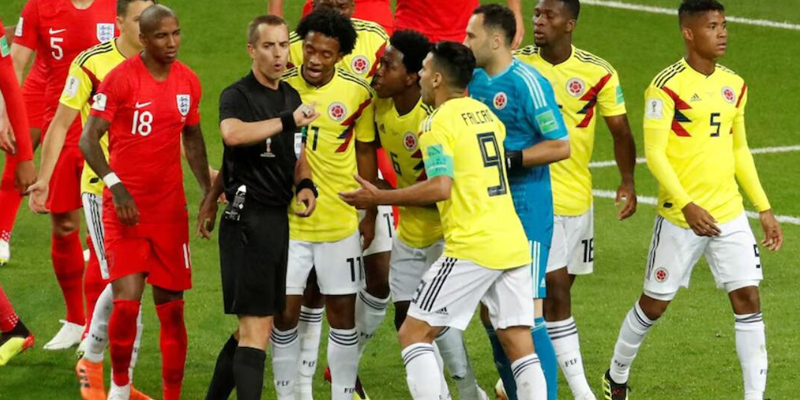
How To Deal With Difficult Players And Coaches As Referee?
Soccer is a highly physical confront sport. Conflict between players is common in the game. As a referee, you will always need to face some difficult players and coaches during the game. To make sure the game is under control, referees need to learn how to deal with difficult players and coaches.
What kinds of troubles players and coaches will make for the referee?
- Arguing with the referee
Difficult players and coaches may frequently argue with the referee over calls they disagree with, or try to persuade the referee to make a call in their favor.
- Disputing calls made by the referee
They may openly dispute calls made by the referee, sometimes even questioning the referee’s authority.
- Complaining
Difficult players and coaches may complain about their opponents or the conditions of the game, such as the weather or field conditions.
- Engaging in unsportsmanlike behavior
They may engage in unsportsmanlike behavior, such as tripping, pushing, provocation, or other types of physical fouls on the opposing players.
- Encouraging their players to play aggressively
Difficult coaches may encourage their players to play aggressively or use tactics that may be considered unfair, such as diving or simulation.
- Inciting crowd reactions
Some difficult coaches may incite the crowd to put pressure on the referee or opposing players.
- Disrespecting officials
Difficult players and coaches may display disrespect towards officials or show a lack of sportsmanship.
Before you handle the problems from difficult players and coaches, you need to know why they argue with you. It’s important for referees to recognize these motivations and stay impartial in their decision-making. There are several reasons for the players and coaches to make some trouble to the referee.
Motivations of the players and coaches who making trouble
- They believe that the call is unjustified
Sometimes, players and coaches may genuinely believe that a particular call is incorrect and will argue their case to the referee in the hopes that they will make the call in their favor.
- They are trying to influence the referee
Some players and coaches may try to influence the referee by applying pressure, which they believe will affect the referee’s decision-making. They may hope to gain an advantage over their opponents by getting favorable calls.
- They are trying to disrupt the game
Some players and coaches may use tactics like pressuring the referee to disrupt the game and unsettle their opponents. By creating a distraction or causing the other team to lose their focus, they may hope to gain an advantage.
- They are frustrated
In some cases, players and coaches may feel frustrated or angry with the game’s progress and may vent their frustrations at the referee.
How to deal with the trouble made by difficult players and coaches?
As a soccer referee, it’s not uncommon to encounter difficult players and coaches. Here are some tips on how to deal with them:
- Stay calm and composed
It’s important to remain calm and composed in any situation, even if the player or coach is being confrontational or aggressive. Don’t let their behavior affect your judgment or decision-making.
- Be firm and confident
Show that you are in control of the situation by being firm and confident in your decisions. Make sure that players and coaches understand that you are in charge and that your decisions are final.
- Listen to their concerns
If a player or coach has a legitimate concern or question, listen to them and respond in a respectful and professional manner. If you can explain your decision, do so clearly and calmly.
- Use your authority
If a player or coach continues to be difficult or disruptive, use your authority to warn or even eject them from the game. Make sure that you follow the proper procedures and rules for disciplinary action.
- Stay focused on the game
Don’t let difficult players or coaches distract you from the game. Remember that your primary responsibility is to ensure that the game is played safely and fairly.
- Stay impartial
It’s important to remain impartial and not show favoritism towards any team or player. Treat everyone equally and make your decisions based on the rules of the game.
- Seek assistance if necessary
If a situation becomes too difficult to handle on your own, don’t hesitate to ask for assistance from other officials or authorities.
